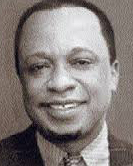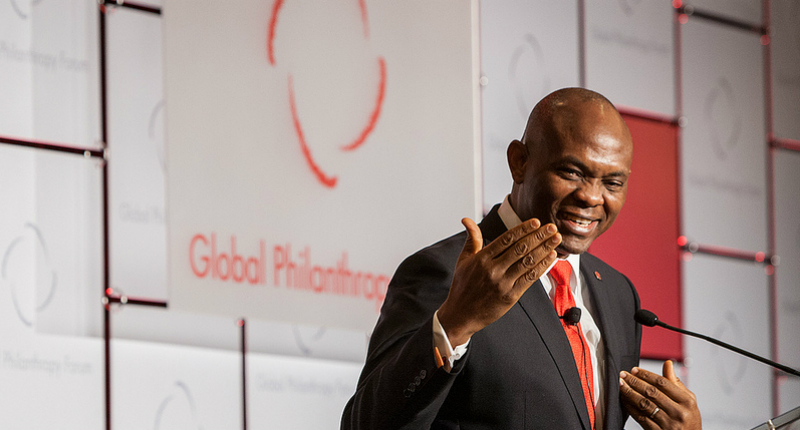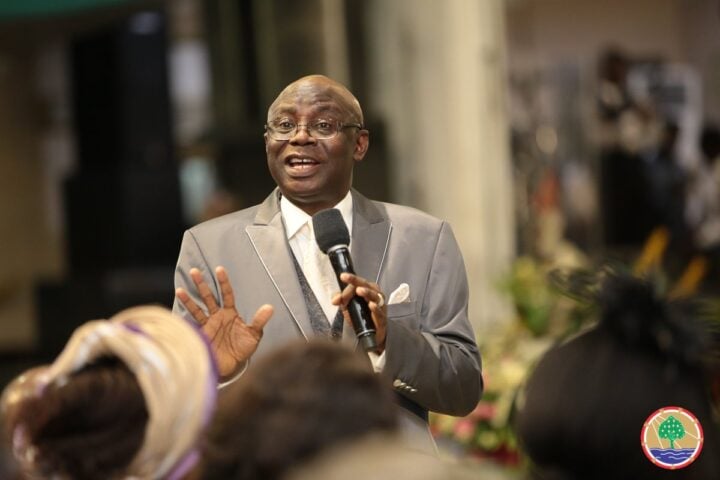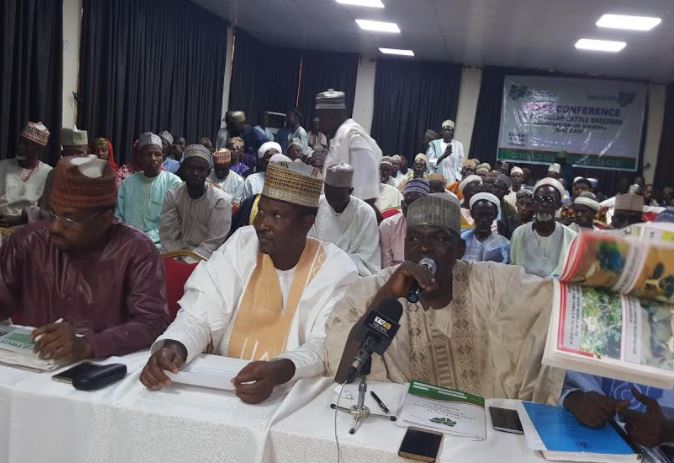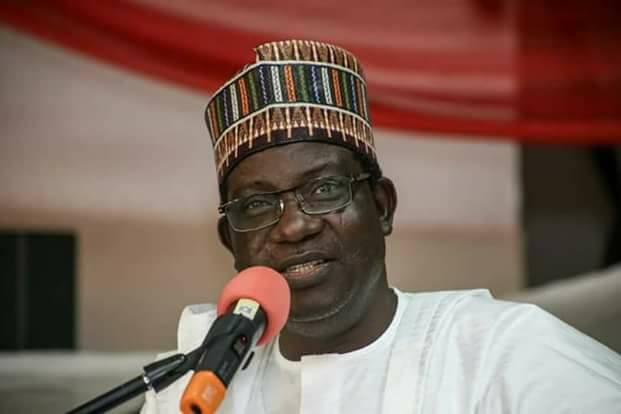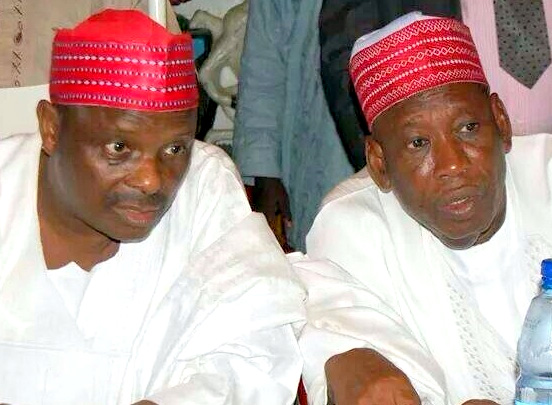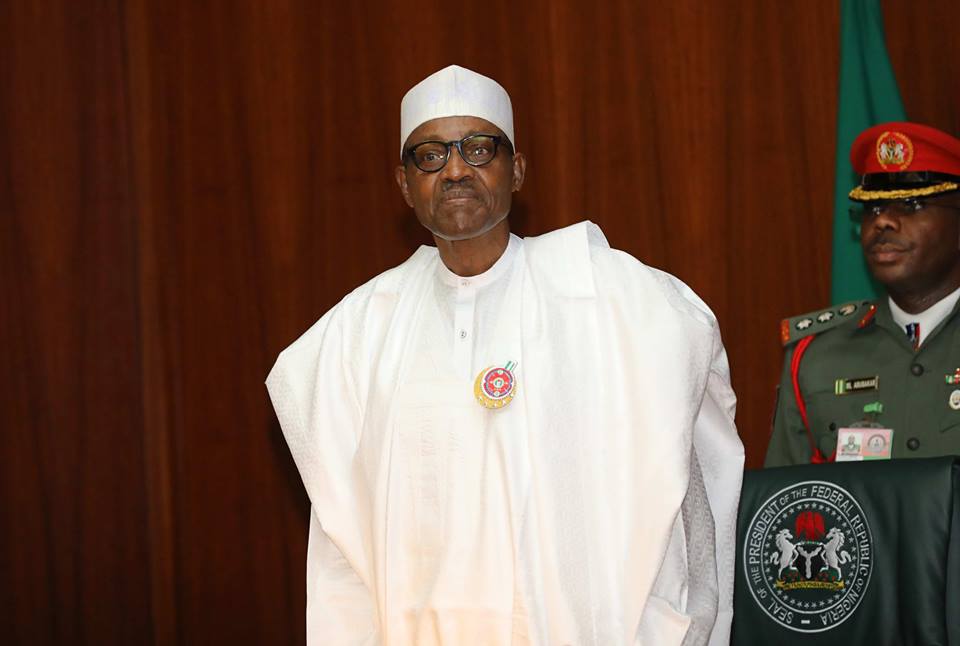He shuns politics and frivolities to concentrate on business and philanthropy, but some observers believe that with his visible and regular presence at high profile international business fora, and the recognition he receives, Mr. Tony Elumelu is fast becoming a business ambassador for the country.
Only recently, the chairman of Heirs Holding became the first African to receive the Dwight D. Eisenhower Global Entrepreneurship Award in its 33 years of existence. The progenitor of the award, Dwight, was the 34th President of the United States of America.
The award was presented to the chairman of the United Bank of Africa, UBA, at an award gala in New York by another former US President, George W. Bush. It was well attended by other recognized world leaders.
Last year, at the US – Africa Business Forum (USABF) which was organised by Bloomberg and the United States department of Commerce held alongside the United Nations General Assembly, U.S. Secretary of Commerce commended Elumelu for his pivotal role in US-Africa business relations.
Advertisement
Elumelu was host to over 200 global leaders with Secretary of Commerce, Penny Pritzker as the guest of honour at the event. Indeed, he had spoken at the USABF earlier that day after President Obama’s address, re-emphasising that America needs to expand and scale up their policies in Africa and not necessarily make changes to what they are doing on the continent.
For Elumelu, awards and global recognition pour like confetti. He holds the Nigerian national honours, the Commander of the Order of the Niger (CON); and a Member of the Order of the Federal Republic (MFR); and he recognised as one of “Africa’s 20 Most Powerful People in 2012” by Forbes magazine.
- He was a member of the World Economic Forum’s Regional Agenda Council on Africa.
- His presence on the Bretton Woods Committee, which brings together senior leaders in the global banking industry, is recognition of his work on African development.
- He is a Fellow of the Nigeria Leadership Initiative (NLI).
- He is involved, through his foundation, with the Tony Blair Africa Governance Initiative (AGI) in a partnership to strengthen the private sector’s role in the economic transformation of select African countries. This partnership is called the Blair-Elumelu Fellowship Programme.
- He is co-chair of the Africa Energy Leaders’ Group (AELG)
Entrepreneurship development
Advertisement
But perhaps his most visible presence on the global stage is entrepreneurship development in Africa through the yearly Tony Elumelu Entrepreneurship Forum. Last year’s edition, which brought together thousands of entrepreneurs from across Africa, was held in Lagos with seamless flow. And for this year’s, the Foundation is already receiving applications from all over the continent.
Ordinarily, the logistics challenge of hosting one thousand young people from over 54 countries and prominent investors, entrepreneurs, business leaders and policy makers should be an onerous task that would make the success of forum evoke a feeling of achievement and contentment. But as he and his guests clearly showed at the last edition, the enormity of addressing Africa’s twin challenges unemployment and poverty is for him a far greater challenge.
With Africa’s abundant natural and human resources, its endemic poverty has become a perplexing paradox. In the novel, THE FALSE TRUTH, a professor tells a sad tale of the continent: “Africa’s geography and environment are in direct contrast to its political and social circumstances. A continent that is so rich in natural resources has been plagued by destructive leadership motivated mainly by greed.”
“With its pristine simplicity, the continent evokes thoughts of Eden,” the professor continued from a source. “This is evident in her exquisite flora and fauna. At the same time, the widespread senseless poverty echoes the outback of hell, with poverty and devastating diseases serving as the hallmark of the average citizen’s daily existence.
Advertisement
Capturing Africa’s magnetic ability to attract perilous opposites, TIME Magazine once reported that: “Africa—especially the sub-Saharan region—has begun to look like an immense illustration of chaos theory.”
“According to observations made by the British charity Oxfam, development efforts have been in place all over the continent throughout the past two decades, yet Africans continue to grow poorer with each passing year. This is hard to believe. I don’t have to tell you that Africa is blessed with all the resources that make for greatness — human, material, and ecological.”
According to the professor, “The continent harbours more than 40 percent of the world’s potential hydroelectric power supply; the bulk of the world’s diamond and chromium resources; 30 percent of the uranium; 50 percent of the world’s gold; 90 percent of its cobalt; 50 percent of its phosphates; 40 percent of its platinum; 7.5 percent of its coal; 8 percent of its known petroleum reserves; 12 percent of its natural gas; 3 percent of its iron ore; 64 percent of the world’s manganese, 13 percent of its copper, vast bauxite, nickel and lead resources, and millions of untilled farmlands.”
“You are probably wondering why, in this world of great abundance, such extreme poverty not only exists, but is allowed to continue,” the professor continued.
Advertisement
But while much of Africa’s poverty is attributable to poor leadership, it is obvious that there is much individuals can do to better their lot and others before the red of the famine of good leadership turns green.
Africa’s unemployment challenge
Advertisement
Aliko Dangote, President of the Dangote Group, who spoke at the forum, offered another scary perspective: “Unemployment around the continent is troubling. A 2013 study by Brookings Institution found that African youth (15-24 years) constitute about 37% of the working age population. The same age group, however, accounts for about 0% of jobless people in Africa.
“Working poverty rates among the youth in Sub-Saharan Africa was nearly 70% in 2016, translating to about 64 million working youth living in extreme or moderate poverty (less than $3.10 per day).
Advertisement
“About 10 – 12 million young people join the continents labour market each year.”
But the man, who became an entrepreneur at young age, and is now a leading industrialist across Africa, employing thousands of people, has a solution: “From a very early age young Africans have to be encouraged, educated, equipped and inspired to be employers of labour rather than employees.
Advertisement
“Entrepreneurship has the potential to be one of the most potent tools for Africa’s transformation. Entrepreneurship can create jobs and increase the middle class which is essential in sustaining economic growth.”
“We can’t look on without doing something,” says Tony Elumelu, an entrepreneur, philanthropist. “This is as fundamental reason we have the Tony Elumelu Foundation doing what we are doing today.
He continued: “When we launched, we wanted to change the narrative on African development. We wanted to reframe the agenda, so that economic development would no longer be centred on foreign aid. We would show that Africa’s transformation could and should be driven by Africans.”
Established in 2010, The Tony Elumelu Foundation is a leading philanthropic organisation in Africa with the aim of promoting entrepreneurship as the catalyst for the socio-economic development of the continent. The Foundation has set itself apart from grant-making bodies, by operationalising integrated programmes to support entrepreneurship in Africa and by enhancing the competitiveness of the African private sector
TEF has achieved this, namely through its flagship initiative – the entrepreneurship programme, a 10-year, $100 million commitment to identify, train mentor and fund 10,000 entrepreneurs.
Vice President Yemi Osinbajo
Vice President Osinbajo, noted for richly illustrated speeches, graced the forum with another simple but powerful speech on the same theme of what will make Africa work – the resourcefulness of its people.
“Here in this room are seated the answers to that question, indeed we have right here with us 1000 reasons why Africa would work and you are those reasons why this country will work,” he opened his presentation.
“Across agriculture, ICT, hospitality, fashion, energy, manufacturing, entertainment and many other fields, the breadth and depth of talent and innovation on display in the current and previous Tony Elumelu Entrepreneurship cohort have shown that there is indeed hope.”
He had examples to show:
- In the 2016 set, we have Osakwe Chukwunonso who is building vehicles that would run on clean energy.
- Soji Megbowan is creating educational products that would simplify STEM especially the teaching of STEM subjects.
- Sierra Leonean Edward Noni from the 2015 set built a tracking tool which was useful, following the devastating flood in his home country of Sierra Leone.
- Frank Mugarura of Rwanda is the proprietor of a branding and marketing agency that is set to conquer the continent.
- Nkem Okocha, Mamamoni, as she is called, runs a prolific microcredit enterprise.
“These are merely a handful of some of the inspiring stories that have preceded you and we know now that indeed Africa is set for incredible progress in the next few years.”
There are many more at where his examples came from:
- Shabbirali Hasnain Mussa, of Tanzania is of the 2017 set. He says, “After receiving the seed capital from TEF, we have secured office space, and managed to get an affordable bag making machine which produces non-woven bags. By doing this, we have had the chance to grow our business and hired 5 staff; by doing this, we doubled our output and attracted new clients.
- Dennis Mulongo Mutoro, Kenya: Within two months of joining, I launched a new product. Three months later, before even completing the programme, I have made 3 sales and 1 contract for over $28,300. This I owe to TEF training alone.
- Jean Emmanuel Yannick Labonne, Mauritius: The seed capital is a blessing. I once read Mr.Elumelu’s quote “Do not eat the seed” and this was the guiding line for me when I received the seed capital. To be part of TEF has opened unimaginable doors and allowed me to dive deep and explore the depths of entrepreneurship. I shall be forever grateful.
- Professor Osinbajo also dwelt on the blockers to the potentials of the young entrepreneurs, key among which he called the tyranny of the past. He cautioned them on how history can tie people down, compelling them to look back until sometimes they trip; compelling them to look at the present with fear and apprehension; how history, especially past failures individually or collectively can become a barrier to achievement of freedom.
- With resources and knowledge acquired by the participants, he charged them to make be forward ever their policy.
The Bill Gates, Steve Jobs, etc
Citing factors like ingenuity, creativity, ideas and most importantly passion in the success stories of such great men around the world, Elumelu also urged the participants to be their best.
He however called on governments of various African countries to improve on the ease of doing business to enable entrepreneurs thrive. He commended the Buhari administration for improving the operating environment in Nigeria.
Then, he stressed the point, he has often made, that it is for Africans to develop Africa. But indeed, that should be a challenge for his enormous energy, wealth and experience.
The Future
“At the end of our 10-year commitment,” the Foundation says, “Tony Elumelu Entrepreneurs will become a generation of dynamic African business owners, who will prove that local business growth will drive Africa’s economic and social transformation. We believe that by the end of this ‘Decade of African Entrepreneurship,’ thousands of businesses will grow and flourish, driving sustainable prosperity across Africa. Furthermore, they will create ripples and waves of economic transformation across the continent.”
Bisi, a journalist and author, wrote THE FALSE TRUTH which is dedicated to Mo Ibrahim
